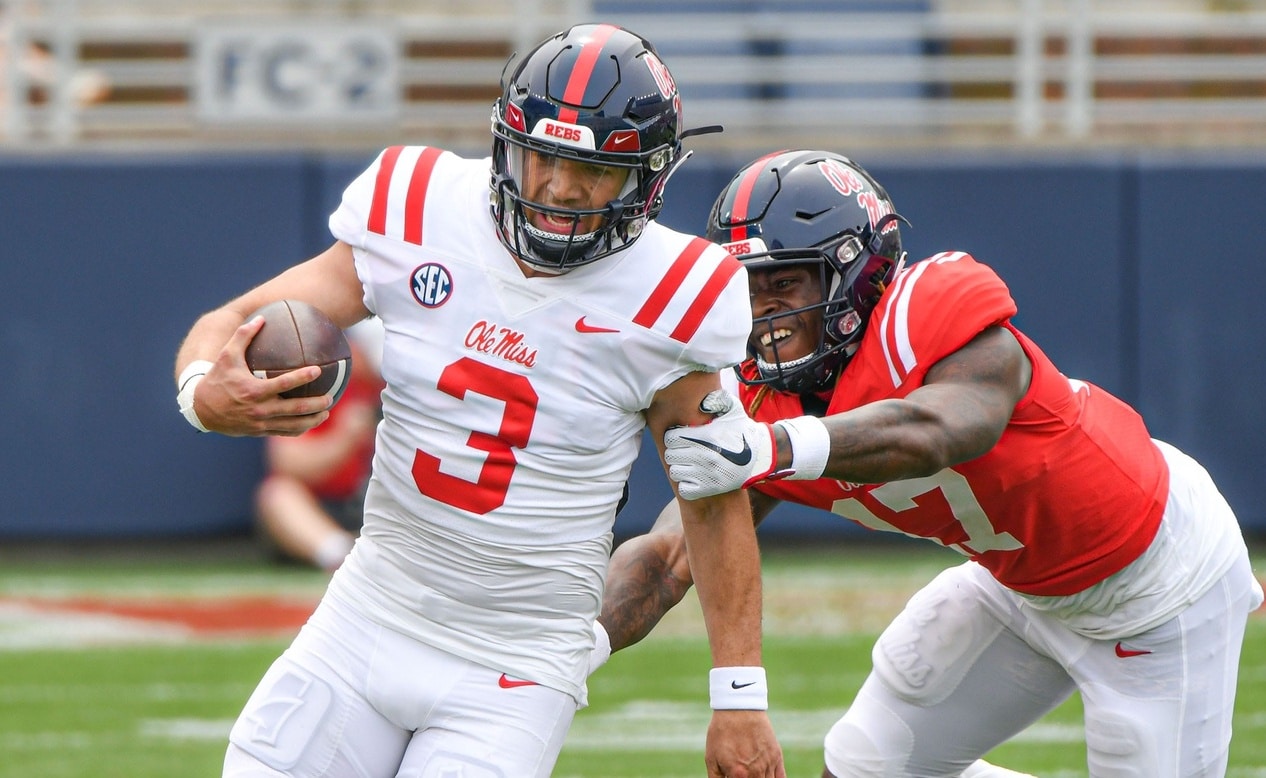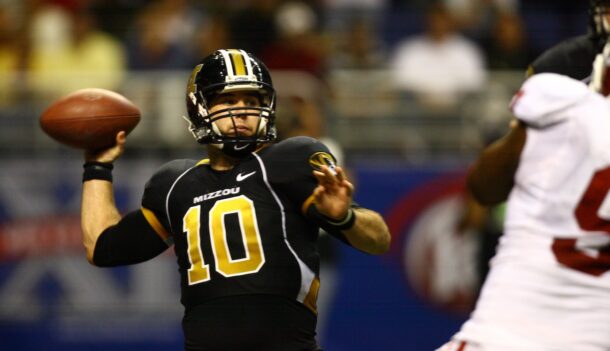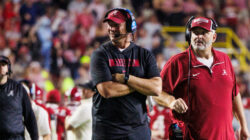
The Spencer Sanders situation at Ole Miss is weird, but here’s how it could work for all parties
When Spencer Sanders announced that he was committing to Ole Miss, there was a consensus opinion.
“Well … that’s interesting.”
It was interesting because Ole Miss had an incumbent starter in Jaxson Dart, and earlier that week, Lane Kiffin added highly coveted LSU freshman Walker Howard. Interesting it was that Sanders chose a place with 2 talented quarterbacks, and with just 1 year of eligibility left after he was an accomplished 4-year starter at Oklahoma State, he chose a place without a clear path to QB1 status.
Now as fall camp kicks off, you’d be hard-pressed to find anyone who observed Ole Miss who believes that Sanders will win the job. Part of that could be related to Sanders’ shoulder injury that limited him in spring, though he did look the part at The Grove Bowl. And part of that could be that Dart received glowing reviews for his turnover-free spring.
More prevalent than the “Sanders for QB1” takes was the “Sanders is about to hit the portal as a grad transfer” take. It was enough of a thing that ahead of fall camp, he discussed his future with On3:
‘I can’t wait to represent #OleMiss’: Spencer Sanders says he isn’t going anywhere https://t.co/VTIWspY26I pic.twitter.com/wngSX8V8Kq
— OMSpiritOn3 (@OMSpiritOn3) July 25, 2023
At the very least, this is weird. Sanders isn’t some run-of-the-mill transfer. He’s a former New Year’s 6 bowl MVP with 85 total touchdowns as a Power 5 quarterback. Among active FBS quarterbacks, he ranks:
- No. 3 in career rushing yards
- No. 4 in career total offense
- No. 7 in career passing yards
- No. 12 in career passing TDs
There’s a world in which as long as Sanders’ academics check out, he could leave Oxford and transfer elsewhere to play immediately as a grad student.
No, that’s not ideal for all parties. The list of FBS schools that would turn to an outsider as their new starter this late in the offseason probably isn’t very long. Even if he went to a place with a familiar scheme fit, there’s still new terminology to learn, new receivers to develop a rapport with and a new locker room to win over. It’ll be an uphill climb if he chooses new surroundings.
But let’s say Sanders sticks with what he said and stays.
There’s a way that this can work out for all parties.
If Sanders is indeed going to stay at Ole Miss and hold a clipboard, we need to remember a few things. One is that Dart, as great as his offseason has gone since Kiffin raised the stakes, is still trying to show that he can be that guy against quality competition. The splits against FBS teams with a winning record vs. FBS teams with a non-winning record aren’t ideal. Dart thrived in a controlled spring setting, which very well could be the driving force behind him taking those first snaps this season. But is it a forgone conclusion that Dart makes that next step? Not yet.
Let’s also not forget that Dart has a propensity to take on contact. Sometimes, you love that. Other times, you wonder if the guy realizes that he’s not built like Will Levis or KJ Jefferson. He’s 1 non-slide decision from getting banged up. Last year, that fearless (and somewhat reckless) mindset could’ve put that depth to the test. This year, though, having Sanders and Howard as an insurance policy could allow Dart to play at that top gear.
Plus, history tells us that the SEC teams that have 1 starting quarterback for an entire season are in the minority. Nine SEC teams started multiple quarterbacks in 2022:
- Alabama
- Arkansas
- Auburn
- Florida (opt-out)
- Kentucky
- Ole Miss
- Tennessee
- Texas A&M
- Vanderbilt
Only 5 SEC teams had 1 starter. Even if you omit Florida because Anthony Richardson opted out of the bowl game and you don’t count Ole Miss because Luke Altmyer got a trial run as a starter, that’s still half the SEC that turned to QB2.
With Sanders in that quarterback room, Ole Miss would easily have the most accomplished backup in the SEC. If Kiffin goes into the season with that in his back pocket, dare I say, we’ll see a rare smile from him.
So besides a situation outside of his control breaking the right way, how else could this be a benefit to Sanders?
Remember who his coach is. Kiffin made a 24-year-old Charlie Weis Jr. the youngest Division I coordinator ever at FAU in 2018. And then when Kiffin replaced Jeff Lebby after 2021, he re-hired the 20-something offensive coordinator to be his primary play-caller at Ole Miss.
Sanders will be 24 years old at season’s end. The guy was Draft-eligible after the 2020 season. He’s had 3 different opportunities to, in theory, get feedback on his NFL Draft stock. And yet, Sanders is entering Year 6 of college. There’s a chance that he could decide that he doesn’t want to pursue a professional career and that he’d rather treat his 2023 season as his first step into the coaching world, and that it’ll benefit him working with the extremely well-connected Kiffin, who has never been one to worry about age as some prerequisite (he was the youngest NFL coach ever at 31 and he was the youngest FBS coach when Tennessee hired him as a 33-year-old).
I don’t know Sanders’ professional career aspirations. For all I know, the multi-disciplinary studies major wants no part of coaching and this will be the last time he steps on a football field. But if he even had the slightest interest in that, getting a front-row seat to the Kiffin experience could prove to be more beneficial in the long term than a last-minute transfer to a Group of 5 school in need of a starter.
But that’s just perspective from a 33-year-old on a laptop, and not an accomplished 23-year-old who might want to play this game until somebody tells him that he can’t.
Whatever awaits Sanders in 2023, it feels like the same 3 words will follow.
“Well … that’s interesting.”
Connor O'Gara is the senior national columnist for Saturday Down South. He's a member of the Football Writers Association of America. After spending his entire life living in B1G country, he moved to the South in 2015.







